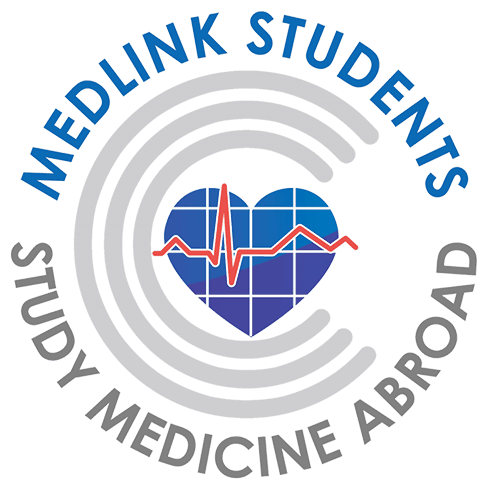How to Choose a Medical School: Definitive Guide (17 Criteria)

Choosing a medical school is one of the most significant steps in your life. Studying medicine or dentistry is a big commitment, and you can’t just entrust it to any higher education institution. Therefore, you must think twice before deciding on which medical university to choose.
As you are not a medical student yet, there might be several medical school criteria you may still not know about.
Table of Contents
- 1 Which medical schools should you apply to?
- 1.1 Accreditation
- 1.2 Curriculum
- 1.3 Tuition fees
- 1.4 Location
- 1.5 Living expenses
- 1.6 Admission Requirements
- 1.7 Preparation for licensing exams
- 1.8 Ranking
- 1.9 Student life
- 1.10 Psychological support
- 1.11 Opportunities for scholarships
- 1.12 Dormitories
- 1.13 Professors
- 1.14 Class Size
- 1.15 International experience
- 1.16 Hospital and clinic affiliation
- 1.17 Talk to someone who has experience
- 2 What you shouldn’t do while choosing a medical school
Which medical schools should you apply to?
Unfortunately, a medical university is not just a product for sale, and school comparison tools do exist but are highly unreliable or biased. Yet, there are some crucial criteria when comparing medical schools.
We provide you with the most extensive guide on choosing a medical school. Here is a list of what to consider when choosing a university and why.
Accreditation
If you choose to study medicine in English, this means that you are looking for international experience and an area of development. It’s vital to make sure the medical school is recognised by Medical Councils all around the globe. Otherwise, you may end up being limited to practice in 2 or 3 countries that are not on your wishlist.
What to do: Your best bet is to go to WDOMS and check if the university is recognised by World Health Organisation (WHO). Suppose you have chosen a specific country and what they offer. You can search by country name. Or you can browse our extensive database of medical schools in Europe that teach in English. We have pre-screened and hand-picked all the universities on this list, and we made sure they are globally recognised.
Curriculum
Various types of medicine courses exist, but they all have something in common. Most universities rarely change their curriculums for the premedical years (usually years 1 to 3). However, there might be a big difference in their practical training (usually years 3 to 6).
It’s imperative to have as many practice sessions as possible. Deep science knowledge is important for a good doctor, but it’s also essential to know how to use it. What’s the point of memorising tonnes of study materials if you haven’t even seen a stethoscope yet?
What to do: always check a medical school’s curriculum and make sure you will have as much practical training as possible. But you shouldn’t count only on the university to do everything for you. Another great idea to gain extra knowledge and skills is shadowing a doctor.
Tuition fees
As people love to say, “Money doesn’t buy happiness”. The same goes for education. High tuition fees don’t always mean a high level of education. Tuition fees are mainly based on a country’s economy and living standards or public funding, and they have nothing to do with the education level.
For example, private universities have higher tuition since they are usually not funded by the government.
What to do: plan your budget carefully and don’t spend more than you can afford. Otherwise, you take the risk of graduating with debts on your shoulders
Location
You are going to invest 5 or 6 of your best years there. Make sure you will like the place where you are going. Yes, education comes first, but you should also ensure that excellent leisure time activities are available. Remember, you have to take a break from time to time. Otherwise, you will get overwhelmed.
If you enjoy the vibrant nightlife, discos and large shopping centres, then populous or commercial cities and capitals are the best choices for you. If you prefer a calm place with more green areas and less crowded streets, we advise you to look for a small provincial city. If you don’t have a preferred lifestyle, the third option is to make sure just to find the best medical school for you.
What to do: make a list of what you need in the city where you are going. For example:
- Specific bank institutions,
- Available sports and outdoor activities
- Cultural and historical heritage
- The abundance of shopping centres, and more.
It’s all up to your preferences. After you are done with the list, start searching for your perfect destination.
Living expenses
You pay a tuition fee once or twice per year, but living expenses come each month.
Don’t let your annual accommodation costs go over your budget. If your rent is too high or you spend too much money on unnecessary needs, there is a high chance to run out of money. This will lead you to drop from university and give up on your dream. A vast, luxurious flat and expensive restaurants are not worth ruining your career, right?
What to do: you should carefully check the city of your chosen medical school on websites like Numbeo. Or watch some YouTube videos. Many medical students share their journeys there. They will give you an overall view of the prices and expenses there.


Admission Requirements
While comparing medical schools, make sure to check if you meet their admission requirements. Each university has its own ranking system. Some medical schools require only A-Levels or GCSE grades in your high school leaving certificate. In contrast, others’ admission criteria is an entrance exam on science subjects like Biology and Chemistry.
Also, make sure to check at what level the exam is. Although it’s usually at a secondary high school level, some medical schools are looking for candidates with advanced Biology and Chemistry knowledge.
If the university of your dreams requires advanced knowledge, don’t worry. They probably also offer a pre-medical course that provides you with the necessary education. This way, you will also have a significant advantage over other candidates. This is an intensive course where you learn Biology, Chemistry, and Physics - essential subjects for a prospective medical student and also the subjects included in the entrance exam. What is more, in some universities, students who successfully finish the pre-medical course are exempted from entrance exams and get direct admission.
What to do: research universities’ admission criteria. If they require entrance exams, on their website usually, you can find test examples or papers from previous years. Do their tests and check your results. This way, you will be prepared for the topics and assess your level and competitiveness.
Preparation for licensing exams
After choosing to study medicine or dentistry abroad or at home, you probably already know where you want to practise as a doctor. But it’s necessary to be aware that each country has its own licensing exams.
Yes, these tests are all about medicine, but they come in different formats like the USMLE exam for the USA, the KROK test for Ukraine, or the PLAB exam for the UK. But not every medical school provides training for all the licensing exams around the world. Thus, preparation for these tests is on the list of what to look for in a medical school.
What to do: head over to your country of choice’s medical council website and read about their regulations to become a licensed doctor. Then check on the university’s website and curriculum if they meet all of the requirements.
Ranking
A medical school is not always what its ranking says. And to be honest, it doesn’t matter at all. Rankings are not always posted by approved institutions, and they might be very different from organisation to organisation.
So if you are still comparing medical schools by ranking, always check the reliability of your source of information. What is better to check instead of rating is what the school has done so far. For example, check their awards, search for their students’ results on contests, school’s social activities or what research projects they take part in.
What to do: go to the university’s website and check on their history, awards and facts. There you can find all of their activities so far, contest results, their research projects and more.
Student life
Being a medical student means hard work and dedication to study. But everyone needs a break. And a break doesn’t only imply sleep between lectures and studying. For example, sports activities, excursions, or acting and dancing classes can help your brain get a temporary hiatus from studying. This will encourage your personal talents and will improve your life and mental health as a student.
No one has become a good medical practitioner only by reading books and practising in hospitals. Everyone must have free time for their hobbies and away from work. To be up to your ears in work will lead you to mental and physical strain. You should never allow this, neither while being a student nor when you start working as a doctor.
What to do: while choosing a medical school, make sure the university or at least the city offers some student activities that suit your interests. Doing something new or different once per week will make you feel much better and significantly increase your productivity.
Psychological support
Many students are not used to living away from their families. Going abroad all alone can affect your mental health for a while. If you don’t get proper support and help, you could make some bad decisions for your future.
In some cases, students’ homesickness can lead to abandoning their education and returning to their hometown or country. Also, missing home can distract you from your main goal - to become a great doctor or dentist. The last thing you want is to fail your exams. This may ruin your career entirely.
What to do: many universities with English-taught programmes offer psychological support for their students. Speaking with an expert may help you overcome your insecurities and make you feel safer away from home. If you have never been away from home or abroad, you should consider a university that offers mental support for its students.
Opportunities for scholarships
Choosing a medical university means you should also consider funding your education. There are many ways to do this. In most cases, your parents will provide financial support, but there are other ways to fund your studies.
A scholarship is an excellent opportunity to lower your expenses a bit. Different universities offer different kinds of financial aid. For example, in many medical schools, the best students are awarded by reducing their tuition fees by 50%, or even 100%. Another option is an accommodation fellowship.
Yet a third option is to opt for a Medlink Students Scholarship for a grad-entry programme at a Caribbean Medical University.
What to do: while comparing medical schools, take a look at their scholarship options. This can ease your budget, and you might even save some money. Also, scholarships are mainly offered to their best students. This will stimulate you to study harder and achieve high results.
Another idea to consider is starting a part-time job. Most universities abroad, for example, have their curriculums and timetables made to allow students to work at least part-time. Working part-time could cover your monthly rent and utilities. Other advantages are also that you will meet local people, socialise easier and gain experience.
However, if your academic performance is really impressive, just give our student advisors a call and they will walk you through the process of applying for a Medlink Students Scholarship at one of the following universities:
Dormitories
Going to a new and unexplored city might be stressful and confusing. When arriving, you will have to spend several days in a hotel until you rent your own accommodation. This will add additional expenses and put more pressure. A large and unknown city will make it even harder for you to find a flat close to your school.
Student housing offered by medical schools is a great choice because of many reasons. Firstly, you will live with other students and socialise. Other advantages are affordable accommodation and living costs.
Dormitories are located at a short distance from your faculty, and you won’t have to wander around the city searching for the campus.
Last but not least, you can apply for a dormitory before your arrival and have everything arranged for you before going to the city.
What to do: during your medical school comparison, we advise you to consider universities that offer students dormitories. This will save you a lot of trouble and extra expenses.
Professors
Not every good doctor can teach adequately. Some people are among the best at what they do but the worst at explaining it to others. But there is also a combination of both a great doctor and an excellent teacher.
Studying medicine, especially not in your native language, might sometimes be challenging. That’s why you need to be taught by the best in this area. What every prospective student needs is a teacher with knowledge and patience. People are ready to do their best and go out of the box to educate the next generation of highly skilled physicians.
The professors at the university are among what to consider when choosing a medical university.
What to do: check their list of employees, and the more straightforward thing to do is to “google” their names. Many medical practitioners write books and articles for health magazines. This will give you an overall look at their work.
Class Size
The group’s size can affect the level of education. Unfortunately, not everyone gives enough priority to their education. These students usually don’t make it past the 1st year. But this year is essential. You need to focus, study hard, and let nothing distract you.
“The more, the better,” says Winnie the Pooh. But sorry, Pooh, not here. Overcrowded groups usually are noisy. Several people speaking may distract not only their classmates but also the professor. So “the less, the better,” this time. A class of around 10-15 students can focus easily, and the teacher can also pay individual attention to anyone when necessary.
Another plus of being in a small group is taking participation in class. This can make you stand out from the rest in your teacher’s eyes. Small details like that can also help you in many ways. For example, when it comes to searching for a summer clerkship. You can speak to the professors and ask them for help. Once they know you are an excellent student with deep knowledge, the least they could do is give you a letter of recommendation.
What to do: research how the class groups are organised. Don’t use group classes for socialising. Use them to focus and study hard. If you want to make friends, seek large groups outside of the university. For example, in the school cafeteria or lounge rooms in the dormitories.
International experience
After graduation and successfully passing exams, you will start applying for jobs in different health-related institutions. Since you are still a junior in this area, your records from exchange programmes in universities and hospitals will greatly benefit you.
Taking part in exchange programmes between universities or training in international hospitals and clinics has many benefits. To start with, you will get a new perspective, meet new mentors, and learn something new every day.
On the other hand, in the medical field, international experience is beneficial for your CV. Receiving recommendation letters from your clerkships and exchange programmes will come in handy when you start looking for a job.
What to do: during your research on which medical schools you should apply to, don’t forget to check their international opportunities. Graduating with almost no experience outside of medical school may slow your career progression.
Hospital and clinic affiliation
Medical education includes different types of practical experience - clerkships, internships, classes with bedside teaching and clinical rotations. Many students have a hard time searching for teaching hospitals for their summer clerkships.
Usually, summer clerkships are obligatory to graduate successfully, but not every hospital accepts training students. But affiliated clinics are always welcome to help future doctors develop and grow in the area of medicine.
What to do: make sure the school has affiliated hospitals and clinics. This can ensure your free access to watch patients’ treatments or receive advice from experienced medical practitioners. Also, it’s easier to apply for a summer clerkship in an affiliated hospital of your university.
Talk to someone who has experience
Speak with other students who are currently researching their options. Or, if you know a student in a higher medical year, consult with them about their experience, what they have been through and what you should look for.
At Medlink Students, we specialise in helping students choose the best medical schools abroad. We were medical students once and have eyewitnessed all the struggles you will meet. You may wonder how we can help you in choosing a medical school.
We have the largest database of pre-screened and hand-picked medical universities in Europe. Schedule a FREE consultation, share your preferences with us, and we will guarantee your excellent student experience.
What you shouldn’t do while choosing a medical school
Don’t believe everything you see and hear
We all know that one person who knows everything about everything. When making such an important decision, fact-check everything you see and hear. Trust your friends, but only if they speak out of their personal experiences, not when talking about what they have read.
Also, there’s a possibility of meeting people ready to talk about everything, even if they are not well-informed, just to get some extra attention. They will speak as much as possible about something they don't know. If you have blind faith in them, you may end up disappointed.
What’s better is to list the medical schools you are considering. Then go to the nearest hospital and kindly ask to speak with the doctors. Every physician would welcome the chance to help their future colleague. They have been where you are now and will share their opinion on what to look for and what is suitable for starting your medical adventure.
Don’t believe everything you read
There are a lot of student forums where you can read opinions as different as chalk and cheese. There is nothing wrong with doing this kind of research. But always bear in mind that no one guarantees you that the author is or was a student at all.
Also, some students participating in online forums may have been too lazy and expelled. But instead of realising their fault in this situation, they would blame everyone else, especially the university.
Instead of reading strangers’ opinions, we advise you to search for an actual present student at this medical school. For example, many students create university groups on platforms like Facebook, and it’s easy to find someone. Most students are friendly and always happy to help. So make a list of your questions and ask them for their opinion and experience.
Leave a Reply

About Medlink Students
Leading international recruitment company for medical students in Europe. British Council certified. 10+ years of experience and more than 10,000 students advised.








